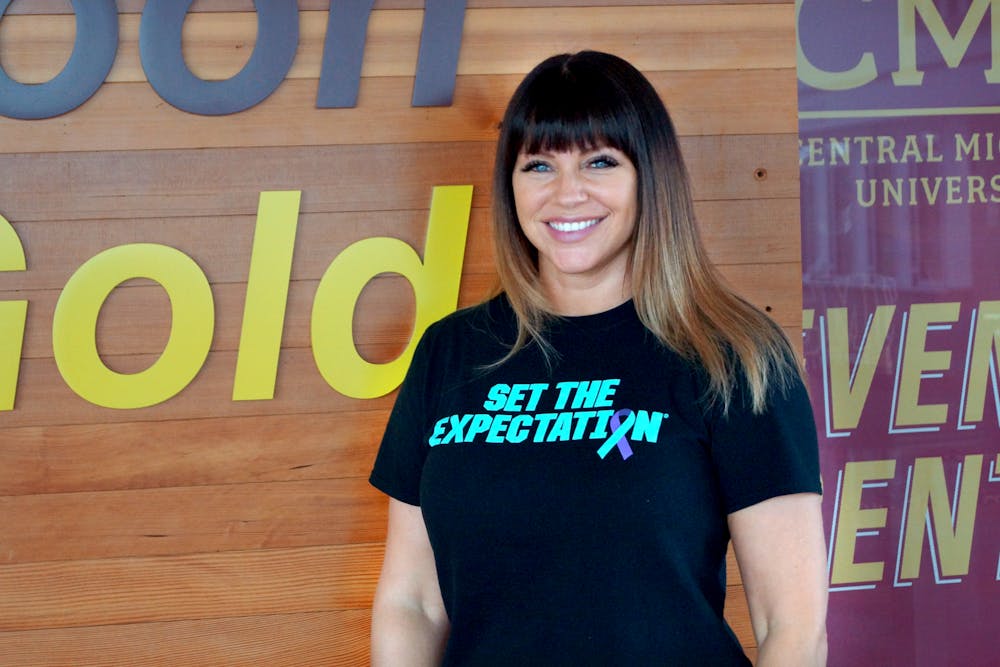EDITORIAL: Secrecy is part of the problem
Sexual assault survivor speaking on campus shouldn't be private

A nationally-known sexual assault survivor and activist spoke on campus last week about sexual abuse and domestic violence that surrounds college football and university campuses.
Survivor Brenda Tracy was raped by four Oregon State football players in 1998 who continued to play football; two of them were suspended for one game. Sixteen years after she was sexually assaulted, she publicly tells her story to try to address rape culture on college campuses.
On Sept. 10, Tracy spoke to members of the Chippewa football and men's basketball teams. Tracy’s speeches are often open to the media, however the Athletics Department told Central Michigan Life the speech was "private." The department did publish a press release about her visit calling it a "powerful message."
Message received. When it comes to discussing sexual assault, Central Michigan University prefers to have that conversation quietly and behind closed doors, if at all.
During a time when movements such as #MeToo and #Time's Up and millions of people of all ages, across the nation are confronting abuse and harassment, what kind of message is CMU sending when it slams the door on that discussion?
Tracy chooses to share her story with the world. It's painful to relive and, make no mistake, the point of her visits is to discuss topics that make people uncomfortable. We know that more often that not, sexual assault goes unreported. According to the Rape, Abuse & Incest National Network, only 310 out of every 1,000 sexual assaults are reported. That means 2 out of 3 cases go unreported. As is it now, only 20 percent of women report their sexual assault. Fear that police and society won't support survivors is cited as one of the biggest reasons so many survivors don't come forward.
Women clearly grapple with coming forward after a sexual assault. After they’ve been disrespected and harmed in the worst, most intimate way, they are terrified of being further disrespected and violated by being silenced by campus or community leaders and law enforcement.
What kind of message does CMU send to sexual assault survivors by restricting Tracy’s voice? In fact, the only reason CM Life even knew about the event is because one of the organizers — not the Athletics Department — called to invite journalists to cover it.
This is not the first time the university has chosen "privacy" over transparency when discussing sexual assault and sexual harassment. It's not even the first time CMU has made speakers on campus private from the media.
On April 24, Timothy Boudreau, journalism department chair and instructor, invited representatives from the Westboro Baptist Church and the Satanic Temple of Detroit to debate in his class. The university placed restrictions on covering and attending the event because they were concerned about "student safety."
A higher education institution withholding educational experiences from its students is not a great look for CMU.
CMU has the potential to create real change in the world by keeping its students informed about current issues and controversial speakers. We assume that is the reason for inviting Tarana Burke, founder of the #MeToo movement, to campus today. She will speak at 7 p.m. in Plachta Auditorium during an open-dialogue event about sexual violence. Members of SAPA (Sexual Aggression Peer Advocates) will be present during the event to provide support to individuals who may need further resources.
The more people who hear stories from people like Tracy and Burke, the more opportunities there are to inspire change in how we view and respond to sexual assault and domestic violence.
Staying quiet, or having these discussions behind closed doors, is no longer an option.



